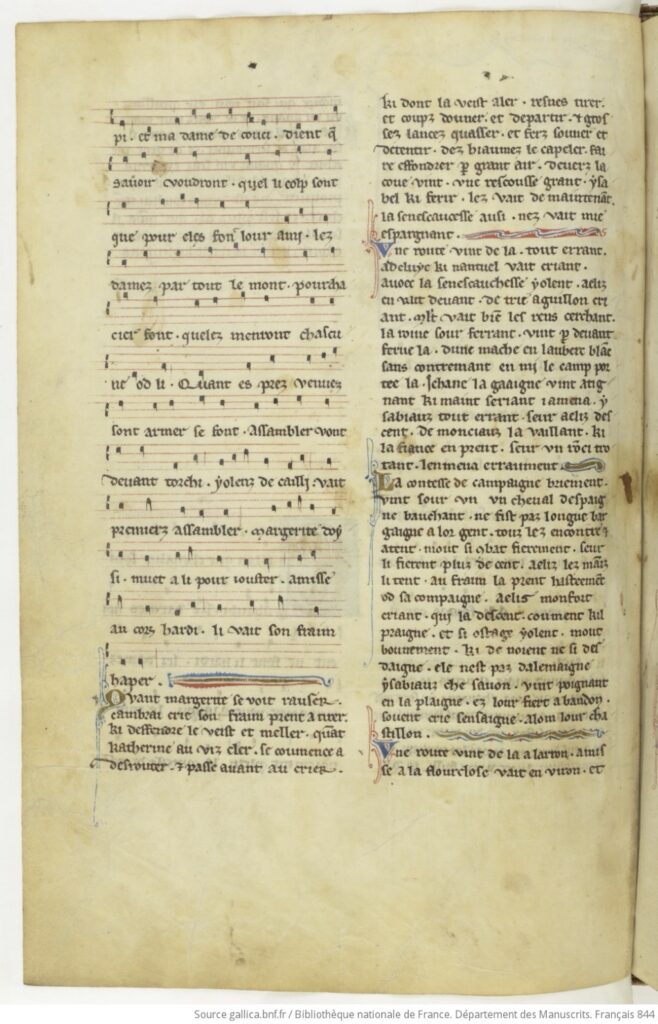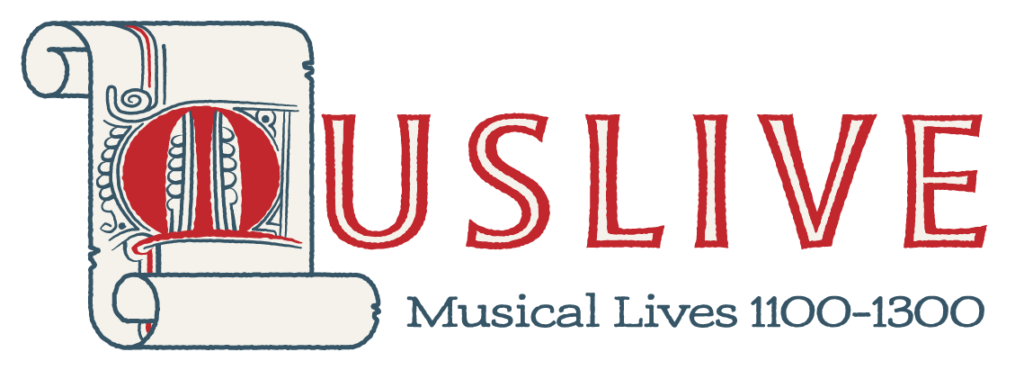Performance and our performers play an important role in the MUSLIVE project. Performance offers an opportunity to make the texts we study – and discoveries about the communities and worlds they operated in – accessible to new audiences and performers. This includes performing French trouvère songs, as well as other traditions and documents we research such as those in Arabic, Judeo-Arabic, Hebrew and Latin.
Performance is also, for the MUSLIVE project, a research methodology. Studying songs and texts through their performance is a means to advancing understanding of their craft, particularly their sonic effects (rhyme sounds, metre, vocalities), facets of the historical record notoriously difficult to excavate. Performance allows us to listen across linguistic traditions and genres that once shared space, affording opportunities to consider not only what made them distinct from one another, but also potential points of contact between them.
Musical Lives therefore brings together scholars and professional performers at regular intervals in interdisciplinary teams devoted to intensive collaborative investigation of our primary texts.

Performance enables us to:
- Explore how trouvère songs may have sounded. It goes without saying that the only access we have to music from our more distant past is in the form of written sources; there are no sound recordings. Music was notated differently in the medieval period compared to modern musical notation, and often songs survive in different forms across several manuscripts. There can be slight or major variations in the melody and/or the words. Thinking about how trouvère songs might have sounded, therefore, is not simple and requires exploration.
- Learn about practices of song-making and adaptation. The evidence of variation in the manuscripts suggests that songs may have been adapted and changed by singers and scribes as they were performed and written down. The mechanics of this – how it played out in practice – remain mysterious. Bringing research and performance together to experiment with different ways of representing and encountering variation will shed light on the practice of composing, performing and adapting songs and create richer ways of engaging with medieval music.
- Explore the musicality of un-notated texts through performance. Trouvère songs are the exception rather than the rule of the many textual and documentary traditions we encounter in the timeframe and geographies of the MUSLIVE project; many texts and traditions survive without musical or sonic notation. Whether or not melody was ever part of their original conception, the poems and charters we study were intended for vocal delivery. How they sounded is an important part of their experience and craft. We aim to unlock these hidden ‘notations’ through experimental work with recitation, bringing researchers and performers into dialogue around these texts in the same way we do for melodied trouvère songs.
- Consider how people ‘spoke’ to and about one another through their music and poetry, including across cultural, religious, linguistic and generic boundaries. Performance allows us to explore the various ways in which sung and/or vocalised texts may have sounded similar, from shared melodic features to shared sounds, form and metre. The focus on sound and performance breaks down the barriers that have previously prevented different genres of text and different poetic traditions from being studied together, allowing potential connections to emerge.
Image source: gallica.bnf.fr / Bibliothèque nationale de France MS français 844, f. 50v
Sharing our discoveries
As we develop our practice, we will bring our research to life through regular live performances and through audio recordings and videography, both to track our ‘work-in progress’ but also to share our discoveries with a wider public. We are thrilled to be joined by our project partners, singers from Siglo de Oro, our project Ensemble Director, Patrick Allies, and the Temple Music Foundation. Together, we look forward to creating innovative programmes, including lecture-recital formats and work with reciters and theatre-makers, to develop a new model for performances of songs, documents and poetry.

